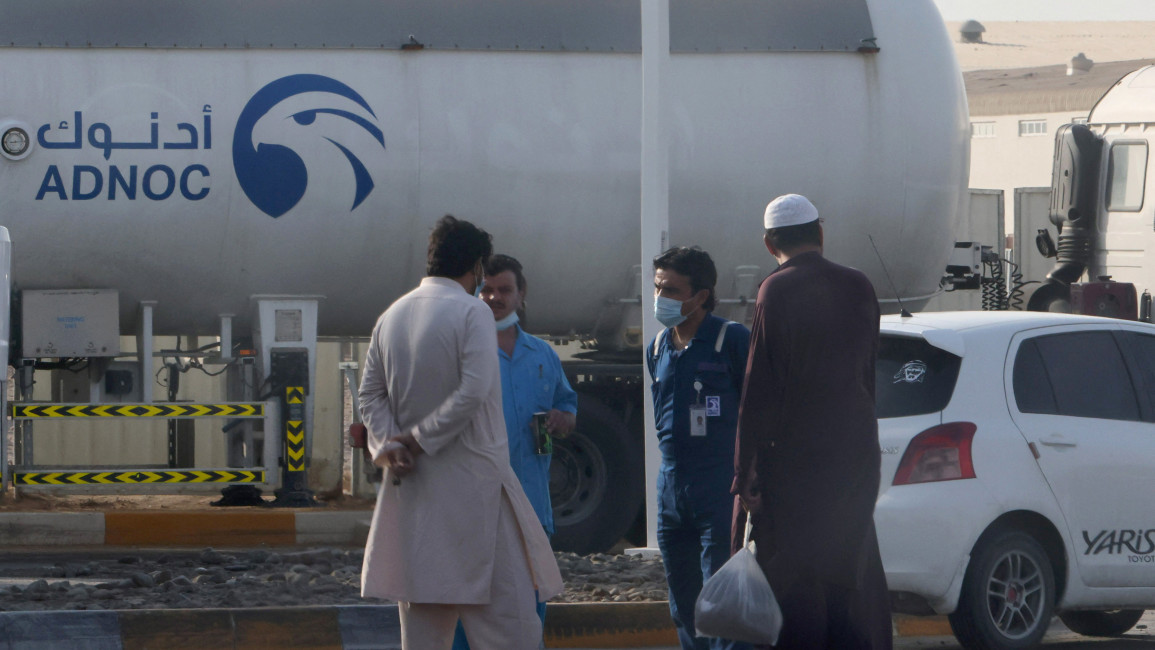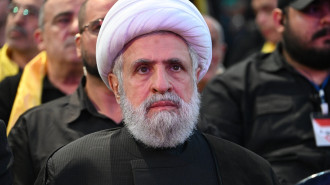
The Iraq Report: Instability spills over into UAE as presidential vote boycotted

In a rare occurrence, the United Arab Emirates was subjected to an attack late last week by a little-known Iraqi Shia militant outfit long believed to be connected to Iran’s Islamic Revolutionary Guard Corps (IRGC).
This has led to suggestions that Tehran is not only continuing to use Iraqi territory to settle scores but has further expanded its scope to attack a nation that was instrumental in assisting Iran in avoiding crippling US sanctions.
Meanwhile, political wrangling over the formation of the next Iraqi government remains a significant issue impacting Iraqi stability four months after the last election. Most of the major political blocs, including Shia cleric Moqtada al-Sadr’s Sairoun, boycotted the parliamentary vote on Monday to decide who would become Iraq’s next president.
Constitutionally, a prime minister cannot be appointed without a president, and therefore the political process once again remains in limbo.
"Last Wednesday's drone attack on the UAE is just another display of how regional conflicts and tensions are often interlinked and tangled with one another"
Militant activity spills over into the Gulf
Last Wednesday’s drone attack on the UAE is just another display of how regional conflicts and tensions are often interlinked and tangled with one another.
Alwiyat al-Waad al-Haq, or the True Promise Brigades, released a statement claiming that they launched four explosives-laden drones “targeting vital facilities in Abu Dhabi” in retaliation for the Emirates’ policies in Iraq and Yemen.
The Emirati defence ministry claimed that only three drones were used in the attack, and all three were intercepted over unpopulated areas.
The United States announced that it was deploying warships and aircrafts to help defend its increasingly embattled ally who recently signed the so-called Abraham Accords with Israel, normalising ties with Tel Aviv.
While the Yemeni Houthi militia, which controls large swathes of the war-ravaged country, ordinarily targets Saudi Arabia with whom they share a border, the UAE has recently come under a series of attacks all linked to its activities in Yemen.
|
|
Last month, three foreign workers were killed in a similar drone and missile strike targeting Abu Dhabi’s oil facilities and airport, triggering a salvo of deadly airstrikes against the Houthis in retaliation. A week later, on 24 January, US forces based in the UAE intercepted a further two missiles allegedly launched from Houthi territory and destined for the Emirati capital.
Similarly, and to coincide with Israeli President Isaac Herzog’s visit to Abu Dhabi last Monday, a third missile attack was launched and thwarted.
While the three previous attacks were all linked to the Houthis operating in Yemen, these latest drone strikes have originated from Iraq, and the UAE will not be able to retaliate militarily as that would risk drawing the ire of both Washington and Tehran, the two most powerful players on the Iraqi scene today.
The True Promise Brigades have only previously claimed one other attack, which was against the Saudi Yamama palace complex in January 2021.
Analysts and experts have long suggested that the Brigades are a front for Kataib Hezbollah, a Shia Islamist group and well-known proxy for the IRGC, listed as a terrorist organisation by the United States.
The group rarely posts its own content, instead relying on both Kataib Hezbollah social media networks and Iran-linked media outlets to disseminate its messages and propaganda.
Further links include Kataib Hezbollah launching a fundraising platform earlier this year and just prior to the attacks encouraging people to donate towards the construction of drones for use in Yemen to attack both Saudi Arabia and the UAE.
It is likely that Iran is once again employing its well-rehearsed strategy of plausible deniability while using indirect military force to express its intentions toward other regional players.
The UAE was integral in assisting Iran to evade US-backed international sanctions on its weapons and nuclear programme by allowing banks to execute transactions on behalf of its proxies, actions that caused the US to warn Emirati banks late last year that they could be sanctioned.
Despite sharing some concerns with regional ally Saudi Arabia about Tehran’s expansionist policies, Abu Dhabi has consistently made efforts to reconcile with Iran, even dispatching a high-level royal delegation led by its national security chief, Sheikh Tahnoon bin Zayed Al Nahyan, in December.
"Any sustained attacks on Emirati infrastructure, and even cities, will shatter the mirage of stability and wealth it has carefully crafted for itself"
The drone strikes from both the Houthis in Yemen and now IRGC-linked Shia proxies in Iraq will therefore come as a sharp surprise to the Emiratis. However, Iran has strategic interests in Yemen, and with UAE-sponsored forces pushing the Houthis out of several strategic areas in recent months, Tehran will be keen to demonstrate to Abu Dhabi the dangers of overstepping.
This will be particularly worrisome for the UAE as it has long relied on its image as an oasis of peace in an otherwise unstable region where it is safe to do business. It has refashioned itself from being solely known as a producer of oil to a country valued as a financial hub.
While this may be a boon, it is also a weakness. The UAE is far too small with a relatively insignificant defence sector and hard power capabilities, and is almost totally reliant on the United States for its physical security.
Any sustained attacks on Emirati infrastructure, and even cities, will shatter the mirage of stability and wealth it has carefully crafted for itself and will cause businesses to depart the diminutive confederacy in droves in search of safer harbours.
|
|
Presidential boycott ruins KDP's plans
Iraq’s instability is also no doubt affected by the incessant political wrangling over which parties and personalities will get to form part of the next administration, four months after national elections were held last October.
While parliament re-elected Mohammed al-Halbousi as its speaker last month, it has categorically failed to elect its next president, with boycotts throwing the plans of Kurdish players in particular into disarray.
As part of the post-2003 confessional political process, the constitution states that the speaker must be from the Sunni community, the presidency held by a Kurd, and the prime minister’s office to be occupied by a Shia.
While some Kurdish analysts connected to the government suggested that Shia cleric Moqtada al-Sadr – whose bloc won the largest number of seats during the last election – would form an alliance of mutually beneficial convenience with Massoud Barzani’s Kurdistan Democratic Party (KDP) in order to install a Barzani-approved president, things have panned out differently.
Rather than get behind Barzani’s candidate – KDP old hand and former foreign minister Hoshyar Zebari – Sadr instead announced a boycott last Saturday of the parliamentary vote due to be held on Monday insisting that “[the] Kurds, in particular the KDP…agree on a single candidate.”
Furthermore, lawmakers filed a successful petition with the supreme court to have Zebari suspended from the presidential race as old charges of corruption and malfeasance in a public office have yet to be determined either for or against him.
Zebari denies all charges, stating “I have never been convicted by any court”.
Still, the allegations have dogged his presidential bid while increasing the chances of incumbent Barham Salih – a Patriotic Union of Kurdistan (PUK) loyalist – for another term in office. The PUK and KDP have been rivals for decades, even fighting a deadly and years-long Kurdish civil war against each other in the 1990s while Saddam Hussein was still in power.
"Political wrangling over the formation of the next Iraqi government remains a significant issue impacting Iraqi stability four months after the last election"
These latest developments come after the KDP threw its weight behind Sadr and Halbousi to have the latter re-elected as parliamentary speaker last month, and is likely to enrage Barzani who now feels he has been let down by his so-called allies.
Nonetheless, Sadr’s share of the vote means that Barzani will have to accommodate his demands unless he can build more fruitful alliances or leverage. He may also be compelled to come to an agreement with the PUK over granting another term in office to Salih and dropping Zebari as his candidate.
But it is not only the Kurds who have had trouble coming to a consensus. The traditionally powerful Shia factions have never been more divided, leading to IRGC Quds Force commander, Esmail Ghaani, to make yet another trip to Iraq this week to see if he can mend fences between them.
However, his efforts are likely to be doubted after Kataib Hezbollah launched yet another attack on Halbousi a fortnight ago, this time by launching missiles that landed near the Sunni speaker’s home in the Anbar governorate.
While Halbousi was not home at the time, the attack has been seen as a clear message from Iran to Sadr that it is willing to intervene and possibly outright kill his allies if he tries to deviate too far from Tehran’s plan for Iraq.
Iran is clearly not willing to let go of its strategic gains in Iraq since 2003, and while it is allowing Sadr to play the role of reformist nationalist for now, it is becoming increasingly evident that the Shia cleric’s “majority government” will either fail to materialise or will only materialise on Iran’s terms.
The Iraq Report is a regular feature at The New Arab.
Click here to see the full archive.

![Following months of instability after October's election and amid ongoing political chaos, the plenary session of Iraq's new parliament took place on January 9, 2022 in Baghdad. [Iraqi Parliament Press Office Handout]](/sites/default/files/styles/large_16_9/public/1237623012.jpeg?h=1c9b88c9&itok=hv9axNl-)

![Palestinians mourned the victims of an Israeli strike on Deir al-Balah [Getty]](/sites/default/files/styles/image_684x385/public/2024-11/GettyImages-2182362043.jpg?h=199d8c1f&itok=xSHZFbmc)


![The law could be enforced against teachers without prior notice [Getty]](/sites/default/files/styles/image_684x385/public/2178740715.jpeg?h=a5f2f23a&itok=hnqrCS4x)
 Follow the Middle East's top stories in English at The New Arab on Google News
Follow the Middle East's top stories in English at The New Arab on Google News


